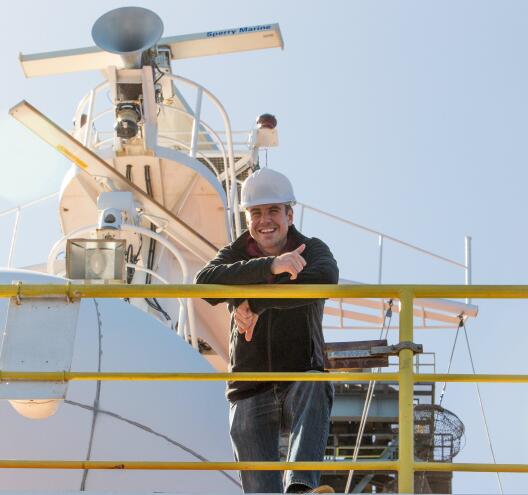
Prof. Dr. David De Vleeschouwer
Institut für Geologie und Paläontologie
Erdsystemforschung
Universität Münster
Corrensstr. 24
48149 Münster
Deutschland

Institut für Geologie und Paläontologie
Erdsystemforschung
Universität Münster
Corrensstr. 24
48149 Münster
Deutschland
| since 01.2022 |
Juniorprofessor for Earth System Science / Erdsystemforschung. W1-to-W3 tenure-track in 6 years. Institute for Geology and Palaeontology, University of Münster. |
| 2019-2021 |
Senior Scientist: “Cluster of Excellence – The Ocean Floor – Earth’s Uncharted Interface”. Deriving scenarios for “warmer worlds” through comprehensive decoding of environmental signals from past warm climate conditions as recorded in ocean-floor archives. Center for Marine Environmental Sciences (MARUM), Bremen. |
| 2020 |
American Geophysical Union (AGU) Nanne Weber Early Career Award in Paleoclimatology & Paleoceanography. |
| 2014-2019 |
Postdoc in “ERC Consolidator Grant EARTHSEQUENCING” to Prof. Pälike. Center for Marine Environmental Sciences (MARUM), Bremen. |
| 2016 |
European Geosciences Union (EGU) Outstanding Young Scientist Award in the division of Stratigraphy, Sedimentology and Palaeontology (SSP). |
| 08.-09.2015 |
Physical Properties and Downhole Logging specialist on IODP Expedition 356 “Indonesian Throughflow”. |
| 08.-12.2013 |
Visiting Scholar. Extended stay with Prof. Dr. James E. Day. Illinois State University, Normal, Illinois, United States. |
| 2010-2014 |
PhD in Geology, "The influence of orbital forcing on the Devonian (370 Ma) extreme greenhouse climate.” Advisors: Prof. Dr. Ph. Claeys, Dr. M. Crucifix. Vrije Universiteit Brussel, Belgium. |
| 2008-2010 |
Master of Science in Geography – Earth and climate. Magna cum laude. Vrije Universiteit Brussel, Belgium and Katholieke Universiteit Leuven. |
| 2005-2008 |
Bachelor of Science in Geography. Magna cum laude. Vrije Universiteit Brussel, Belgium. |
As a paleoceanographer, unraveling environmental proxy signals from past warm climate conditions as recorded in marine sediments is my bread & butter.
Three "warmer-than-present" Epochs of interest:
My research focus lies on climate - carbon cycle feedback mechanisms (and their changing response to astronomical forcing) under non-Quaternary boundary conditions. For example, on a planet with unipolar ice-sheets, on a planet without 8000 m high Himalayan mountains, on a planet with a wide-open Indonesian Throughflow, or on a planet with more than 500 ppm CO2. To do so, I study several geological epochs: the Late Devonian (~375 Ma), the Eocene (~40 Ma) and the Pliocene (~5 Ma). None of these time slices are perfect analogues for the Anthropocene, yet they are worth studying as they provide valuable insights into the machinery of the climate system under boundary conditions much unlike today’s. Obviously, the age of the sediment(ary rock) under investigation is very different between the three epochs of interest, but my work always shares a common objective: Integrating the paleoclimate and geochronology aspects of the sedimentary archives to better constrain how much and how fast our planet has been changing. To do so, I draw from my broad skill set (field, lab and numerical modeling) and from a wide range of proxies (isotopic, elemental and geophysical proxies).
Gemeinsam mit 17 Professor*innen aus dem Fachbereich Geowissenschaften an der Universität Münster veröffentlichen wir einen offenen Brief mit dem Titel "Geographie und Erdsystemwissenschaften - Die Zukunftsfächer". Der Brief ist eine Reaktion auf Statements von Politiker*innen, in einem Beitrag der "Welt".
Der Brief zum Nachlesen: Geographie und Erdsystemwissenschaften - Die Zukunftsfäche
Artikel im Newsportal der Uni Münster: Erdkunde stärkt Klimabildung